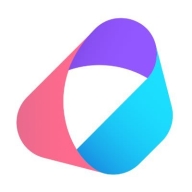

Appian and Orkes compete in the BPM and workflow automation space, offering unique approaches to process management. Appian tends to have the upper hand due to its comprehensive platform, though Orkes's orchestration capabilities make it a strong contender.
Features: Appian supports low-code development, enhancing business agility with extensive integration options. Orkes offers a powerful orchestration engine suitable for complex workflow automation. Appian integrates a wide range of business processes, while Orkes excels in detailed workflow execution management.
Ease of Deployment and Customer Service: Appian provides a customizable deployment process with extensive support options for diverse environments. Orkes allows for straightforward deployment with faster implementation for specific workflows. Appian's customer support is comprehensive and covers a wide range of business needs, whereas Orkes focuses on orchestration support.
Pricing and ROI: Appian has a higher initial setup cost but offers significant ROI through broad functionality. Orkes provides a competitive pricing model with immediate ROI for specific orchestration needs. Although Appian's initial investment is higher, its extensive features can lead to long-term benefits, while Orkes offers a cost-effective solution for streamlined workflow management.
| Product | Market Share (%) |
|---|---|
| Appian | 4.5% |
| Orkes | 1.5% |
| Other | 94.0% |

| Company Size | Count |
|---|---|
| Small Business | 20 |
| Midsize Enterprise | 9 |
| Large Enterprise | 44 |
Appian is a unified low-code platform and solution used by businesses to build enterprise applications and workflows. This product adapts to the needs of clients and the technologies they are already using to combine their data in a single workflow and maximize resources. The platform has four main components through which it transforms the work process for companies of various sizes. They are:
Appian is utilized across a diverse set of industries, including automotive and manufacturing, energy and utilities, education, financial services, telecom and media, transportation, retail, insurance, healthcare, and life sciences. The most frequent use cases of Appian are customer journey, governance, risk and compliance, operational efficiency, supply chain, distributed order management, and environmental, social, and governance (ESG) management.
Appian Features
Appian has various features that allow users to create solutions for their businesses. These features can be separated into a few groups according to function, including automation, low-code application development, and integrations and data. Some of the most frequently used features of Appian include:
Appian Benefits
The benefits of using Appian include:
Reviews from Real Users
A practice leader - digital process automation at a computer software company values Appian highly because the product is easy to develop, low-code, and has a good user interface.
Alan G., an advisory board member at Codecon VR, Appian offers a clear application life cycle, easy to learn documentation, and comes with a fundamentals course.
Orkes provides a robust platform designed to facilitate orchestration of microservices, enhancing operational efficiency. With its sophisticated mechanism, it caters to diverse workflows, ensuring seamless integration and streamlined processes for tech-savvy users.
Orkes stands out for its ability to efficiently manage microservice orchestration, offering a scalable and reliable solution for complex workflows. By focusing on operational excellence, Orkes simplifies process management and enhances productivity. Its architecture supports a wide range of applications, providing versatility and adaptability for advanced implementations. Well-suited for developers, Orkes emphasizes ease of integration and deployment, ensuring that the tool aligns with operational requirements.
What are the most important features of Orkes?
What benefits and ROI should users expect from Orkes?
Orkes is implemented effectively across industries like e-commerce and finance, where real-time processing and robust system integration are critical. Its application is best seen in environments that require seamless coordination of disparate microservices to maintain fluid operations and provide exceptional service delivery.
We monitor all Process Automation reviews to prevent fraudulent reviews and keep review quality high. We do not post reviews by company employees or direct competitors. We validate each review for authenticity via cross-reference with LinkedIn, and personal follow-up with the reviewer when necessary.